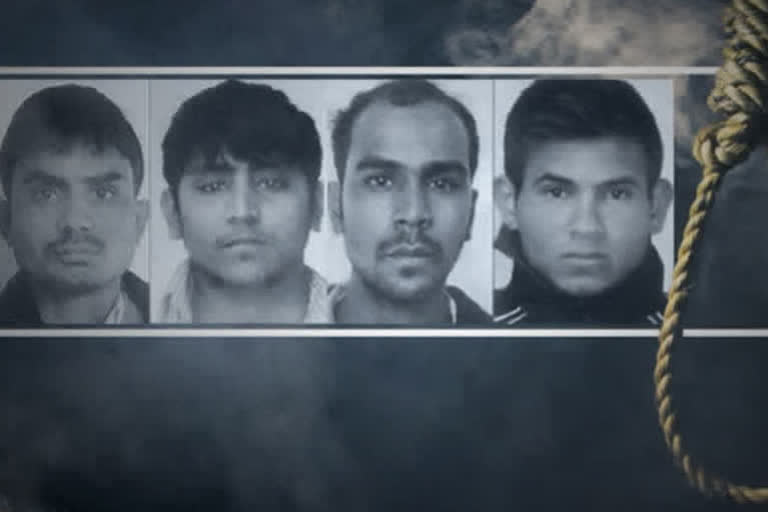New Delhi: The four convicts in the Nirbhaya gangrape and murder case on Sunday contended in the Delhi High Court that since they were sentenced to death by a common order, they have to be executed together and cannot be 'singled out'.
The lawyers appearing for the four convicts -- Mukesh Kumar (32), Akshay Singh (31), Vinay Sharma (26) and Pawan Gupta (25) -- told the high court that some of them cannot be singled out for execution and neither the Centre nor the Delhi government has the power under the rules to do so.
The submission was made before Justice Suresh Kumar Kait during the hearing of the Centre and Delhi government's joint plea challenging a trial court decision to stay the hanging of the four 'till further orders'.
Senior advocate Rebecca John and advocate Vrinda Grover, appearing for Mukesh, told the high court that the petition was not maintainable in view of a recent order by a division bench of the court that the lower court's order has to be challenged in the Supreme Court.
The high court's order, that John was referring to, had come while declining to hear Mukesh' plea seeking a stay on the trial court's earlier order to execute all four on January 22.
Advocate A P Singh, who appeared for the other three convicts, began his arguments claiming there were facts in the case, like the death of accused Ram Singh, which were not investigated by the police.
However, after hearing him on the issue for a few minutes, the court said the arguments were 'not relevant' as 'trial is over' and the entire case has been decided by the Supreme Court.
Subsequently, the court asked him to sit down and thereafter, John commenced arguing.
During her arguments, John said, "The death sentence by the trial court was one composite order and it was upheld as such by the high court and the Supreme Court. If the sentence is common, then the execution has to be common. That is what I am seeking".
She contended that 'bifurcation' of execution of the sentence was not possible under the law.
